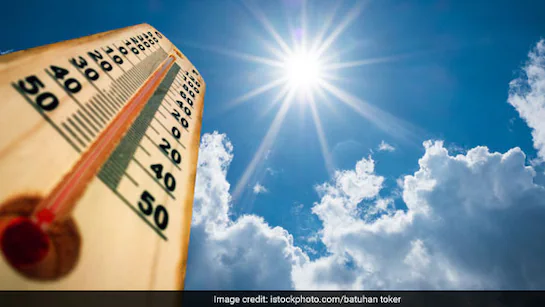In a stark reminder of the planet’s accelerating climate crisis, July 2025 has been officially ranked as the third-warmest July in recorded history, according to the latest findings by the Copernicus Climate Change Service. This alarming milestone reinforces the growing scientific consensus that global temperatures are rising at an unsustainable pace, and the effects are becoming more destructive with each passing season.
The average surface air temperature globally during July 2025 reached a scorching 16.68 °C, which is 0.45 °C higher than the 1991–2020 average, and an even more concerning 1.25 °C above pre-industrial levels. These numbers are not merely data points they represent a tangible shift in Earth’s climate equilibrium and a signal that the effects of anthropogenic global warming are becoming more pronounced, consistent, and dangerous.
While July 2025 didn’t eclipse the all-time highs of July 2023 and 2024, the consistent heat for the twelfth consecutive month is concerning. Over the 12-month period from August 2024 to July 2025, the Earth’s average temperature rose to 1.53 °C above pre-industrial levels, surpassing the critical 1.5 °C threshold outlined in the Paris Climate Agreement. This ongoing breach indicates that the international goal to limit global warming is no longer being maintained, and immediate global policy and environmental action are more urgent than ever.
Beyond the numbers, the real-world consequences of this elevated heat are devastating. One of the most dramatic examples occurred in Turkey, which set a new national July temperature record of 50.5 °C. Across Asia, a series of climate-induced disasters wreaked havoc flash floods, violent thunderstorms, and intensified monsoon rains devastated communities. In northern India, many regions experienced as much as five times the average monthly rainfall, resulting in catastrophic floods, displacement of thousands, collapsed infrastructure, and mounting fatalities. Meanwhile, in Pakistan, where the effects of climate change are particularly severe, the monsoon season once again became a source of destruction. Vulnerable communities faced repeated flooding, highlighting infrastructure weaknesses, a lack of disaster preparedness, and the increasing toll of extreme weather events on human life and economic stability.
Even though July 2025 marked the end of a 13-month streak of record-breaking global temperatures, experts caution that this does not represent a reversal in climate trends. Climatologists have emphasized that even temporary pauses or slight dips in temperature anomalies do not diminish the overall trajectory of global warming. Instead, they caution that each additional fraction of a degree in warming increases the intensity and unpredictability of natural disasters, including heatwaves, torrential rainfall, droughts, wildfires, and storms.
Moreover, these climate impacts extend beyond environmental degradation they threaten food security, disrupt water availability, jeopardize public health, and place a massive economic burden on already struggling nations. Poorer countries, despite contributing the least to global emissions, are often the most impacted, unable to afford the infrastructure or systems needed to withstand such intensifying disasters.
With July 2025 now added to the growing list of record-setting months, the urgency for global coordination on climate mitigation and adaptation strategies is undeniable. Nations must recommit to their emissions pledges, increase investments in renewable energy, bolster climate-resilient infrastructure, and ensure fair access to climate financing for developing countries.
The continued disregard for ecological limits is not only pushing the planet into dangerous territory but also testing the resilience of human societies. July 2025 is a warning, one that must not be ignored. It is not just about temperatures rising it is about the planet changing in irreversible ways. And unless immediate, decisive, and collaborative action is taken, future generations will inherit a world far less habitable and far more volatile than the one we live in today.



Comments (0)
No comments yet. Be the first to comment!
Leave a Comment